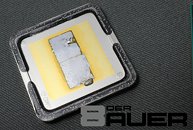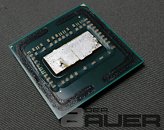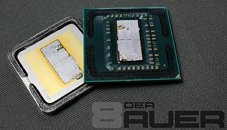Friday, March 10th 2017

You Really Shouldn't Delid AMD's Ryzen 7 CPUs
Power users sometimes really go the extra mile towards achieving the best performance on their hardware. And sometimes, this process includes delidding, as in, removing the processor's Integrated Heatspreader (IHS). This would allow for users to sometimes replace less than perfect TIM (Thermal Interface Material) companies use, achieving lower operating temperatures, and possibly even higher overclocks.
Well, you really shouldn't try to do so with AMD's Ryzen 7. The reason: attempting to delid said processors cost overclocking genius der8auer a grand total of 3 (three!) Ryzen 7 samples before he managed to do it without damaging the processor. This happens because contrary to other CPUs, AMD's Ryzen 7 IHS comes soldered to the chip, which obviously increases difficulty and risk of such a delidding process. Apparently, AMD did a pretty good job with the thermal interfaces of Ryzen 7 anyway - der8auer achieved only a 2ºC decrease in operating temperatures on the delidded Ryzen sample. Long story short: maybe it's not worth it. Especially if your cooling solution of choice isn't able to achieve proper contact with the CPU after the process. You can see a video of the direct cooling test, after the break.
Well, you really shouldn't try to do so with AMD's Ryzen 7. The reason: attempting to delid said processors cost overclocking genius der8auer a grand total of 3 (three!) Ryzen 7 samples before he managed to do it without damaging the processor. This happens because contrary to other CPUs, AMD's Ryzen 7 IHS comes soldered to the chip, which obviously increases difficulty and risk of such a delidding process. Apparently, AMD did a pretty good job with the thermal interfaces of Ryzen 7 anyway - der8auer achieved only a 2ºC decrease in operating temperatures on the delidded Ryzen sample. Long story short: maybe it's not worth it. Especially if your cooling solution of choice isn't able to achieve proper contact with the CPU after the process. You can see a video of the direct cooling test, after the break.



56 Comments on You Really Shouldn't Delid AMD's Ryzen 7 CPUs
It's only a very slightly more legitimate expense.I can't imagine they physical cost of materials and energy for making a CPU is high. Most of the cost will be for the machinery and licences.
It's only a very slightly more legitimate expIt'll be interesting to see what AMD do with their Quad and Hexa-core chips that shouldn't 'need' solder.